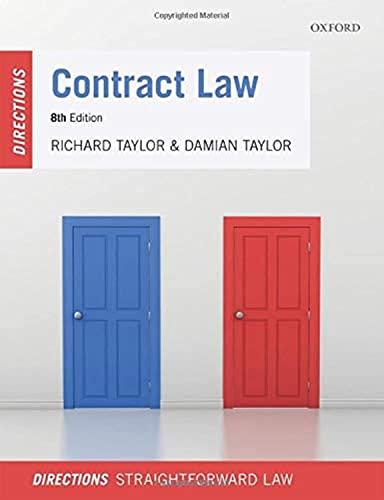Question
Employees in the twenty-first century have greater rights than those in the early twentieth century. They have anti-discrimination rights, overtime pay rules, and safe working
Employees in the twenty-first century have greater rights than those in the early twentieth century. They have anti-discrimination rights, overtime pay rules, and safe working conditions at the federal level. Additional pay and benefit rules exist in each state, including minimum wage legislation, family leave laws, and unemployment insurance laws. Finally, local governments have the authority to enact extra worker safeguards that apply to their areas. There is currently no federal minimum wage. States have the authority to set minimums that are higher than those set by the FLSA. New York, for example, has minimum wages that are greater than the federal standard. During the workday, there is no federal mandate for lunch or rest breaks. However, depending on the sector, some states have laws regulating or prohibiting them (hotel or grocery stores).
The OSHA Act of 1970 is the principal piece of legislation that governs workplace safety and health. After a series of investigative stories by news organizations in the early 1960s revealed that working conditions were often hazardous and unhealthy, Congress passed the Act on December 29, 1970. It established the Occupational Safety and Health Administration (OSHA), a government agency that governs workplace safety and health. OSHA can assess fines and mandate improvements to improve workplace safety if firms do not meet minimal safety criteria. The Occupational Safety and Health Administration (OSHA) penalized Griffin Manufacturing Company of New York $10,000 after an inspection revealed four infractions in their workplace. Three of the breaches are failure to establish an injury prevention program, failure to teach staff safety measures, and a lack of an efficient hearing conservation program. OSHA decided that the hearing conservation program was unsatisfactory due to inappropriate implementation after an investigation. Inadequate labeling on drums containing gasoline placed beside crushed plastic pellets that were found to be contaminated with lead dioxide resulted in the other violation, which was failing to provide information and education on hazardous substances utilized in the workplace.
Employees who are hurt on the job have the right to workers' compensation. In some cases, employees can file for benefits with their employer's insurance carrier and receive medical care as well as a portion of their lost wages. This can help them avoid more financial difficulty as a result of their injury, allowing them to concentrate on getting better rather than worrying about how they'll pay their bills while they're out of work. New York's workers' compensation statute is a type of insurance that covers all employees who are injured on the job. Disabilities occurring from and in the course of employment, as well as death benefits, are covered.
Questions
What are the thoughts on the scenario below? How would one handle this situation if one were the business owner?
- One's company is in business for25years and works out of afour-story, historic building with no elevator.
- Dan, one of the long-time employees on the second floor is injured, becomes disabled and now requires a wheelchair.
- Dan can no longer get to his second-floor desk.
- What does the law require you to do as the employer?
Step by Step Solution
There are 3 Steps involved in it
Step: 1

Get Instant Access to Expert-Tailored Solutions
See step-by-step solutions with expert insights and AI powered tools for academic success
Step: 2

Step: 3

Ace Your Homework with AI
Get the answers you need in no time with our AI-driven, step-by-step assistance
Get Started


